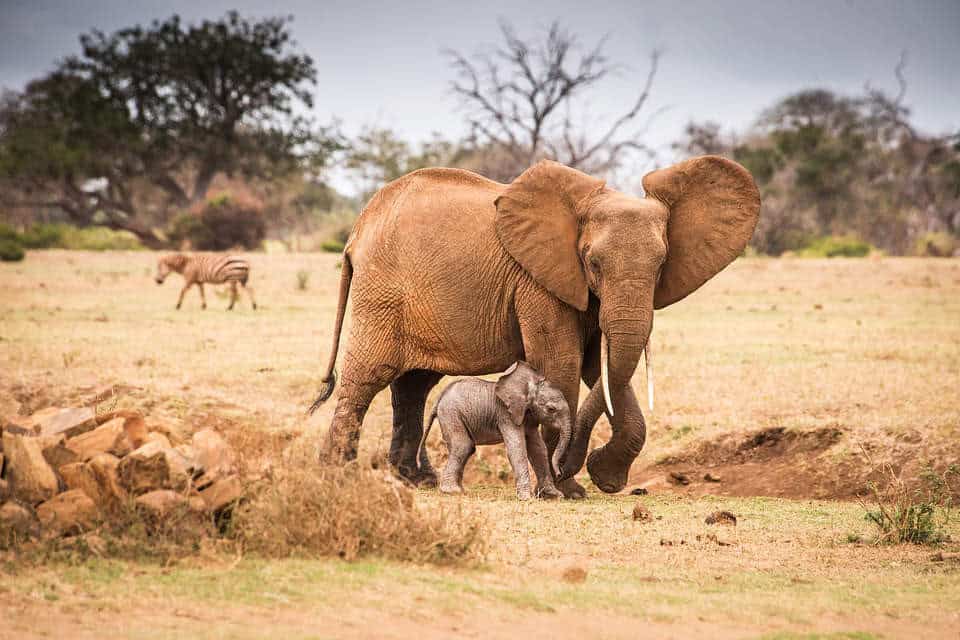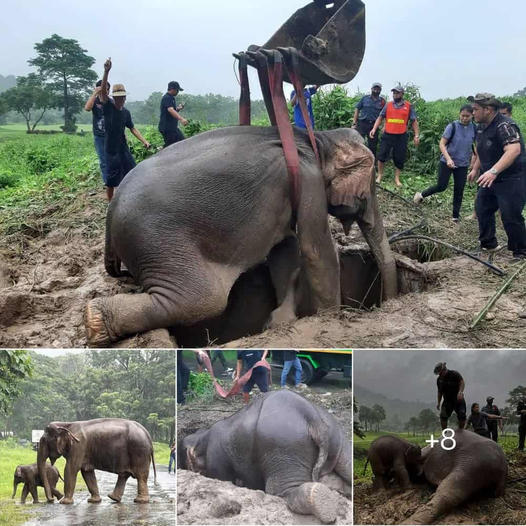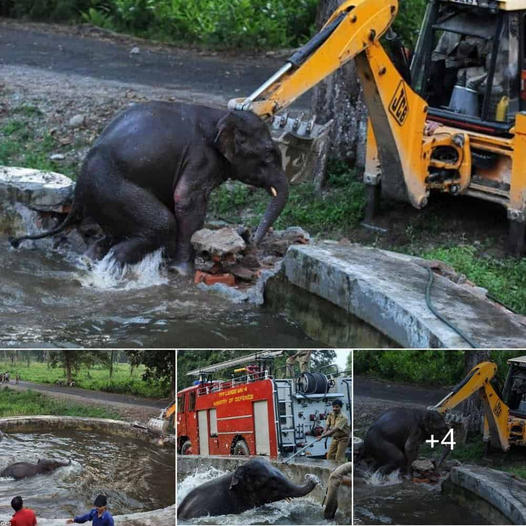The majestic African elephant, a symbol of strength, intelligence, and the continent’s untamed wilderness, is facing an increasingly uncertain future. Year after year, poaching, habitat loss, and human-wildlife conflict have taken a devastating toll on these magnificent creatures, pushing entire populations to the brink of extinction.

But behind the stark statistics and alarming conservation headlines lie heartbreaking stories of individual elephants and the families they’ve lost. These are the tales that truly capture the gravity of the crisis unfolding across the African savanna.
Take the story of Zhuri, a young female elephant whose family was mercilessly slaughtered by ivory poachers in the Selous Game Reserve in Tanzania. Orphaned andaone, the traumatized calf was rescued by wildlife authorities and transported to a nearby sanctuary, where she now lives under constant guard, her future uncertain.

“Zhuri’s eyes were just filled with fear and confusion when we found her,” recalled Alastair Taylor, a ranger with the Tanzania Wildlife Management Authority. “She had witnessed her family being killed right in front of her. It was a devastating sight that will haunt me forever.”
Sadly, Zhuri’s story is not unique. Across the continent, similar tragedies are unfolding as criminal syndicates driven by the demand for ivory ruthlessly target elephant herds, leaving behind a trail of shattered families and traumatized survivors.

In Kenya’s Amboseli National Park, researchers have documented the devastating impact of poaching on the region’s iconic elephant families. Matriarchs, the pillars of their herds, have been gunned down, leaving their young calves to fend for themselves against the harsh realities of the wild.
“It’s heartbreaking to see these young elephants, still dependent on their mothers, suddenly orphaned,” said Dr. Cynthia Moss, a renowned elephant researcher who has studied the Amboseli herd for decades. “Without the guidance and protection of their elders, their chances of survival are greatly diminished.”

But the threats facing Africa’s elephants extend beyond just poaching. Across the continent, the relentless expansion of human settlements, infrastructure, and agriculture has steadily encroached on traditional elephant habitats, forcing these gentle giants into ever-shrinking pockets of wilderness.
In the Okavango Delta of Botswana, for instance, conservationists have witnessed the disruption of ancient elephant migration routes, as once-vast expanses of land have been transformed into farmland and human settlements. This fragmentation not only isolates elephant populations but also heightens the potential for deadly conflicts with local communities.

“The elephants are simply running out of space to roam,” lamented Tshekedi Khama, Botswana’s former Minister of Environment, Wildlife and Tourism. “We must find a way to protect their habitats and coexist with these magnificent creatures, or we risk losing them forever.”
As the world grapples with the sobering reality of declining elephant populations, it is crucial that we not only understand the staggering numbers, but also the deeply personal tales of tragedy and resilience that lie behind them. Only by recognizing the individual stories of these sentient beings can we truly appreciate the gravity of the crisis and redouble our efforts to protect them.

“Every elephant lost is a family torn apart, a community devastated,” said Cynthia Moss. “If we fail to act now, we risk robbing future generations of the chance to marvel at the majesty of these incredible animals. We owe it to them, and to ourselves, to ensure that the African elephant’s story does not end in sorrow.”




